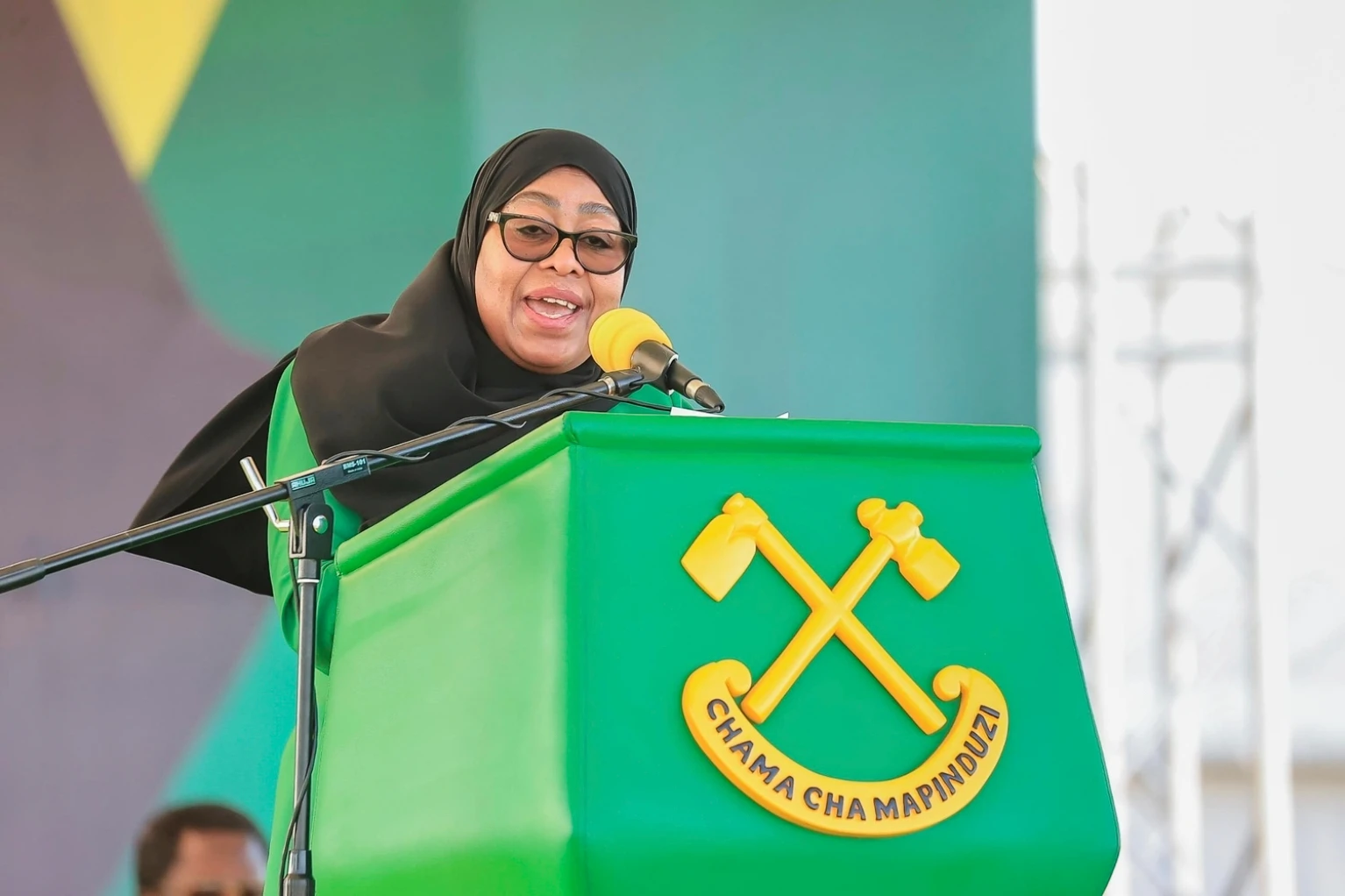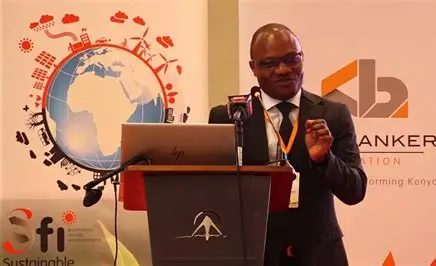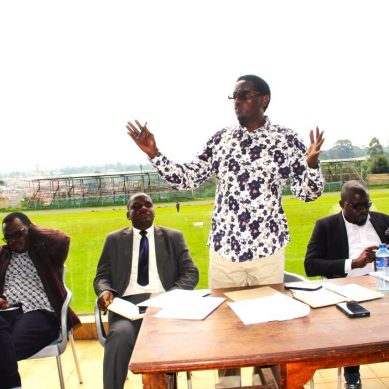
There will never be a just social order until philosophers are kings or kings become philosophers (Anon)
The knowledge world has been changing fast due to the innovation of internet, which has demystified the superiority and dominance of the disciplinary knowledge system, widened the scope of interaction in the 21st century. It is now a necessity that we do not just produce professionals but the professionals we produce must be future-ready.
However, the future, unlike before, does not take long to arrive. The innovation of artificial intelligence (AI) has made the gap between now and tomorrow almost absent.
Unfortunately, higher education has been slow to respond to revolutionary impact of the internet and AI. Most modern universities of the world are stuck with the disciplinary knowledge system, almost blind to the fact that more adaptive knowledge systems exit and are claiming space on some universities of the world. These knowledge systems are: crossdisciplinarity, interdisciplinarity, transdisciplinarity and extradisciplinarity.
Knowledge usually includes theoretical concepts and ideas as well as practical understanding based on the experience of having performed certain tasks. While there are many other definitions of knowledge, this one was tested and adopted by the international group of stakeholders involved in the OECD Future of Education and Skills 2030 project. However, of the new and different knowledges, OECD captured only interdisciplinarity, which it defines as “an approach to curriculum integration which dissolves the boundaries between the conventional disciplines and organises teaching and learning around the construction of meaning in the context of real-world problems or themes.”
Where the interdisciplinary, crossdisciplinary, transdisciplinary and extradisciplinary knowledge systems have been allowed to flourish, they create alternative scholarship and innovations have become more prevalent than where the disciplinary knowledge system continues to predominate. Their scholars are variously called crossdisciplinary scholars, interdisciplinary scholars, transdisciplinary scholars and extradisciplinary scholars or non-disciplinary scholars. They are more receptive to collaborative learning, creativity and innovation and allergic to pure science. They commit their time and energy to linking the sciences (the arts, the humanities, the social sciences and the natural sciences) in the academia. They are also committed to democratic and emancipative and/or liberative academia characterised by genuine independent and freedom of thought as well as collaborative creativity and innovation.
Their graduates have mindsets that are more integrated and integrative and show more tendency towards empathy, tolerance, respect, cooperation, diplomacy and use of the negotiated approach to resolve misunderstandings and conflict than their disciplinary counterparts.
We can talk of extradisciplinary wisdom, transdisciplinary wisdom, interdisciplinary wisdom and crossdisciplinary wisdom being reproduced and transmitted to future generations through the graduates exposed to those systems of knowledge, which are sometimes called team sciences, convergence, sustainability, integrative, informing and engaging sciences. They are called engaging sciences because they allow for multifaceted dialogue between academia and other sectors of society such as social services, art, culture, social movements, and initiatives, urban actors, and individual citizens.
The goal is to establish the university is a hub of this dialogue (e.g. Schmitt and Schwager, 2022). They can also be looked at as knowledge democracy (e.g. Rajesh Tandon, 2023).
Table 1. The knowledge systems of the world, scholars and graduates
_____________________________________________________________________
Knowledge System Type of Scholar Type of Graduates
Extradisciplinary knowledge System Extradisciplinary Extradisciplinary
Transdisciplinary knowledge system Transdisciplinary Transdisciplinary
Interdisciplinary knowledge system Interdisciplinary Interdisciplinary
Crossdisciplinary knowledge system Crossdisciplinary Crossdisciplinary
Multidisciplinary knowledge system Multidisciplinary Multidisciplinary
Disciplinary knowledge system Disciplinary Disciplinary _____________________________________________________________________
Let me write a bit about each of the different knowledge systems available to humanity
Extradisciplinary knowledge system
The most advanced knowledge system available to humanity is the extradisciplinary knowledge system, also called the nondisciplinary knowledge system. It is frequently called extradisciplinarity. Its scholars are called extradisciplinarians and its graduates are called extradisciplinarian graduates. The extradisciplinarian knowledge workers or labours do not evoke the disciplines to generate knowledge and venture beyond academia, engaging with external stakeholders and incorporating non-academic knowledge and perspectives.
Most universities of the world continue to resist extradisciplinary knowledge system since it is the greatest threat to the vested interests of disciplinarians. The extradisciplinary approach to knowledge can help public intellectuals stay relevant and impactful within and outside universities. Apparently, indigenous knowledge experts in our rural communities are extradisciplinarians. If we take the indigenous knowledge workers as the dominant extradisciplinary knowledge workers, then the extradisciplinary knowledge system is top-heavy.
Barriers to the development of the other knowledge systems mentioned below will also bog down extradisciplinary knowledge develelopment.
Disciplinary knowledge system
The least advanced knowledge system that has been available to humanity since the disciplines began to dominate knowledge production in Europe is the disciplinary knowledge production system. Disciplinary knowledge refers to the specific expertise, methods, and perspectives within a particular field of study. It encompasses the “how” of learning within a subject, including the concepts, theories, and ways of thinking that experts in that field utilize. Essentially, it’s about understanding how knowledge is created and applied within a specific discipline.
Virtually all out graduates to-date have been produced in disciplines. However, disciplinary knowledge has a number of limitations. While crucial for focused expertise and understanding specific fields, its limitations include a tendency towards insularity, potential for overlooking broader societal contexts, and difficulties in addressing complex (wicked) problems. While disciplines offer structured ways of knowing, their boundaries can restrict the scope of inquiry and limit the integration of diverse perspectives. Disciplinary knowledge cannot equip students with the knowledge and skills required to play an active and successful role in today’s highly competitive, fast-changing 21st century world or to be future-ready professionals.
The disciplinary knowledge system tolerates the multidisciplinary knowledge system because unlike the other knowledge system, it does not create alternative scholarship on university campuses. Campuses continue to be flooded by disciplinary scholars, to produce disciplinary graduates and exclude other knowledge systems.
Transdisciplinary knowledge system
“A transdisciplinary knowledge system is an approach to problem-solving that integrates knowledge from various disciplines, including those outside of academia and involves diverse stakeholders in the knowledge creation process. It emphasises collaboration and co-creation of knowledge to address complex, real-world issues, particularly those related to societal and ecological challenges” (AI-generated definition).
Transdisciplinary processes deal with transdisciplinary problems that are complex, societally relevant, ill-defined and real-world problems which often show a high degree of ambiguity resulting in contested perceptions and evaluations among and between scientists and practitioners. Therefore, they are susceptible to multiple trade-offs. Transdisciplinary processes construct socially robust orientations (SoROs) particularly for sustainable transitioning (Scholz, et.al. 2024). The integration of science and practice knowledge on equal footing is considered the core of transdisciplinary processes.
Individuals may use different modes of thought; refer to various cultures with diverse value and belief systems; and problems are perceived and prioritised based on roles and interests. Coping with transdisciplinary problems, purposeful differentiation and integration and an integration of evolutionary evolving codes of representing knowledge are necessary.
Finally, what systems to integrate requires consensus-building among participating scientists and practitioners (Scholz, et.al. 2024).
Transdisciplinary ways of doing science have become important in the co-production of knowledge to solve societal challenges. There is, however, a danger that non-academic actors are recipients of information rather than co-creators of knowledge. The early involvement of non-academic actors in diverse roles in projects increases the utilisation of the co-created knowledge. Incorporating transdisciplinarity into classical research approaches adds openness – and thus uncertainty – to projects, more active engagement with non-academic actors especially from vulnerable groups from the start of a project is recommended (Jacobi, et.al. 2022).
Hanger-Kopp (2025) has submitted that transdisciplinary research is a way of creating knowledge that goes beyond just combining different academic fields. It also brings in perspectives from people outside of science, like community members and other stakeholders, to work together on real-world problems. This approach has evolved over decades as researchers thought about how to combine expertise from different areas to create new knowledge and, more importantly, how to connect science with society to make knowledge more useful, trustworthy, and relevant. She adds that transdisciplinary research focuses on blending social and scientific knowledge throughout the research process, with everyone involved learning from each other.
To do this well, processes must be designed to ensure fairness, inclusivity, and diversity, so that all voices are heard and valued. She believes that the approach can be instrumental in building trust between society and science, and also help (some) scientists to trust and use alternative forms of knowledge. This comes at no small cost. It requires not only a reconsideration of our science diplomacy strategies, but also strategic decisions on when and where we can usefully design projects to fulfill transdisciplinary research criteria, such as the inclusion of non-scientific partners early in the research process to allow for joint problem framing and process design. In this regard, close attention should be paid to boundary work, which entails recognizing and valuing different ideas and terms, being open-minded, adaptable, and humble, to name just a few (hanger-Kopp, 2025).
A critical task in promoting transdisciplinarity is ‘education’ of academically trained researchers to acknowledge, value and explore community knowledge cultures in all steps of the research process. However, the accelerating trends towards ‘privatisation’ of knowledge and patenting, reinforced through theories of ‘knowledge economy’ over past 25 years, has eroded support to ‘knowledge for public good’ and ‘knowledge commons. The movement towards effective transdisciplinarity, therefore, must embrace the growing movement of ‘knowledge democracy’! (Rajesh Tandon, 2023).
Barriers to transdisciplinary knowledge development include conflicting definitions, challenges in integrating diverse knowledge types, difficulties in evaluating impact and the rarity of high-level practitioner engagement. These challenges stem from disciplinary language barriers, incompatible metrics of success, and structural barriers within academia. Additionally, institutional and cultural choices, power imbalances between different actors, differing agendas, and varying levels of risk tolerance can hinder collaboration in transdisciplinary knowledge development.
Interdisciplinary knowledge system
Interdisciplinarity or interdisciplinary system involves the combination of multiple academic disciplines into one activity (e.g. a research project). It draws knowledge from several fields such as sociology, anthropology, psychology, economics, etc.
Junguo Liu (2019) wrote that there is a need to shift knowledge generation from disciplinary, linear ‘tree’ model to interdisciplinary ‘web’ model to generate sustainability-relevant knowledge and solutions. Success in such an approach requires engaging multiple stakeholders right from the start and institutions that foster interdisciplinarity.
Sustainability Directory (2025) educates us that interdisciplinary knowledge might sound like a complex term but it’s actually something quite natural to how we live and learn. Think of it as connecting different subjects or areas of expertise to understand the world more fully. Instead of looking at things in separate boxes – like science here, art there and history somewhere else – it’s about seeing how they all relate and influence each other.
Interdisciplinary knowledge, at its most basic, is about blending different fields of study to get a richer, more complete picture of any subject, from baking a cake to living sustainably (Sustainability Directory, 2025). Interdisciplinary knowledge isn’t some abstract academic idea; it’s a practical way of seeing the world. It’s about recognising that everything is interconnected and that bringing different perspectives together leads to better understanding and more effective solutions, especially when aiming for a sustainable and meaningful life (Sustainability Directory, 2025).
Interdisciplinary knowledge becomes a powerful tool for navigating the complexities of modern life, particularly in our pursuit of sustainability. It moves past simply recognising connections to actively using insights from multiple disciplines to solve problems and create positive change. At this level, we begin to appreciate not just that fields are connected, but how and why those connections are vital.
Interdisciplinary knowledge at this level is about more than just knowing different subjects; it’s about actively using them in combination. It’s about applying psychological insights to design better policies, using economic understanding to promote environmental solutions, and blending diverse fields to create more holistic and effective approaches to sustainability and a richer, more conscious life (Sustainability Directory, 2025). Interdisciplinary knowledge, therefore, becomes not just about blending subjects, but also about bridging cultures. It requires intellectual humility – recognising that our own perspective is just one among many – and a commitment to learning from diverse viewpoints to create truly sustainable and equitable futures.
Academically, Interdisciplinary knowledge represents a fundamental shift towards integrated, holistic understanding, essential for addressing the complex challenges of our time and fostering deeper, more meaningful knowledge creation ((Sustainability Directory, 2025).
Barriers to nterdisciplinary knowledge development include communication difficulties due to jargon and differing disciplinary perspectives, lack of a shared language and understanding, and challenges in integrating knowledge from various fields. Also, disciplinary differences in research methodologies, epistemologies, and evaluation criteria can create obstacles. Mindsets, culture and institutional factors like policies, reward systems, funding structures, and the organisation of academic departments can also hinder interdisciplinary collaboration in interdisciplinary knowledge development.
Crossdisciplinary knowledge system
Cross-disciplinary knowledge refers to the application of concepts and methods from one academic field to another, often leading to innovative solutions and a broader understanding of complex issues. It involves integrating knowledge from different disciplines to address problems, explore new ideas, or enhance existing practices. This approach is increasingly important in today’s world, where many challenges require a holistic, integrated perspective [AI-generated definition].
Although this knowledge system involves applying concepts and methods from one academic field to another, cross-disciplinary approaches do not achieve true integration. However, it can lead to a more profound integration of knowledge and perspectives, resulting in new knowledge, wisdom, understandings, insights and solutions. Crossdisciplinary integration can, therefore, be particularly valuable for tackling complex problems that require a holistic approach. Crossdisciplinarity is therefore, integral to the integration movement or revolution (Oweyegha-Afunaduula, 2023) that includes interdisciplinarity, transdisciplinarity and extradisciplinarity -the true knowledge integration systems available to humanity.
Barriers to crossdisciplinary knowledge development include cultural, personal, institutional and procedural ones.
Multidisciplinary knowledge system
Multidisciplinary scholars are disciplinary scholars that tolerate other disciplinary scholars knowing what they are up to but will emerge as loners rather than collaborators and end up achieving and being rewarded alone, which is typical of disciplinarians.
Although a multidisciplinary system is said to involve “the integration of knowledge and expertise from multiple academic disciplines to address complex issues or design problems, the system only allows knowledge workers or scholars to work more closely together without really integrating their perspectives. If they work on a project and produce a report, each participating scholar will produce a micro report. The different micro-reports will then be compiled together, possibly in different chapters of the report. The same would be true if they wrote a book together.
Therefore, although the multidisciplinary system is more complex than a disciplinary one in that different scholars are working more closely together than before, the individuality of disciplinarians is retained. Non-academics my participate to provide information but not in the analyses and writing of the final product.
In my view, the multidisciplinary knowledge system persists because it does not challenge disciplinarity, but preserves it to resist the other more integrating and integrative knowledge systems on university campuses.
Conclusion
Of the ne and different knowledge systems – extradisciplinarity, transdisciplinarity, interdisciplinarity and crossdisciplinarity only extradisciplinary does not require disciplines to operate on a university campus.
Otherwise, all types of scholars and types of students would coexist on campus and work to make it less monotonous and more dynamic. The different new and different alternative scholars – extradisciplinary, transdisciplinary, interdisciplinary and crossdisciplinary, would cooperate to address the debilitating academic ageism, intensifying intellectual death and decline of public intellectualism alternative scholarship approaches can collaborate to address academic ageism, intellectual death, and the decline of public intellectualism on the campuses and outside the campuses of our now more than 50 universities in Uganda.
Besides, interdisciplinary, crossdisciplinary, transdisciplinary and extradisciplinary scholars could easily collaborate to undertake joint research initiatives, leveraging their diverse expertise to tackle complex (wicked problems facing the universities and the country, as well as share responsibity in supervising and teaching students. The transdisciplinarians could facilitate the integration of knowledge across disciplines, while the extradisciplinarians could help translate research findings into practical applications for the Ugandan society. The interdisciplinary scholars and crossdisciplinary scholars could mentor younger scholars across disciplines and generations inn an increasingly internet and AI-dominated society.
Public engagement by the universities would definitely be promoted by the transdisciplinary, and more diversely, the extradisciplinary scholars with broader audiences thereby promoting the relevance and impact of academic beyond the Ivory Tower. Finally, the mixing of different knowledge cultures o on the university campuses would reawaken the universities out of fear and silence and resuscitate public intellectualism and the relevance of the universities to broad society of Uganda. The scholars became inward-looking, emphasising academicism and scholasticism instead of clarifying and articulating issues for the society.
The universities will once again foster public intellectuals, encouraging scholars to engage with public policy – makers and other stakeholders to promote the relevance and impact of academic work within the universities. The universities will be able to develop partnerships between themselves and external organisations to address societal challenges and demonstrate the value of academic research to the consumers of research. The universities would effectively offer educational programmes that integrate multiple disciplines, preparing students to tackle complex problems and think critically, reason critically and generate analyses before and after they graduate.
Lastly, the evil of academic ageism would be squeezed out of the universities by fostering age-friendly academic environments, valuing experience and expertise, and promoting respect rather than fear; intergenerational collaboration; and knowledge sharing among academic staff of all ages. However, all this would only be possible if the government of Uganda and the universities – both private and public – make appropriate and enabling policies to promote transdisciplinarity, extradisciplinarity, crossdisciplinarity and interdisciplinarity in our universities.
For God and my country.
- A Tell report / By Oweyegha-Afunaduula / Environmental Historian and Conservationist Centre for Critical Thinking and Alternative Analysis (CCTAA), Seeta, Mukono, Uganda.
About the Centre for Critical Thinking and Alternative Analysis (CCTAA)
The CCTAA was innovated by Hyuha Mukwanason, Oweyegha-Afunaduula and Mahir Balunywa in 2019 to the rising decline in the capacity of graduates in Uganda and beyond to engage in critical thinking and reason coherently besides excellence in academics and academic production. The three scholars were convinced that after academic achievement the world outside the ivory tower needed graduates that can think critically and reason coherently towards making society and the environment better for human gratification. They reasoned between themselves and reached the conclusion that disciplinary education did not only narrow the thinking and reasoning of those exposed to it but restricted the opportunity to excel in critical thinking and reasoning, which are the ultimate aim of education. They were dismayed by the truism that the products of disciplinary education find it difficult to tick outside the boundaries of their disciplines; that when they provide solutions to problems that do not recognise the artificial boundaries between knowledges, their solutions become the new problems. They decided that the answer was a new and different medium of learning and innovating, which they characterised as “The Centre for Critical Thinking and Alternative Analysis” (CCTAA).








